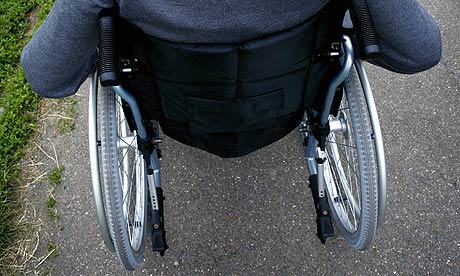 Govan Law Centre (GLC) has expressed dismay that the Scottish Government's proposed private sector tenancy reforms are considerably more regressive for tenants
than the then Conservative Government’s introduction of the short assured
tenancy in Scotland some 34 years ago.
Govan Law Centre (GLC) has expressed dismay that the Scottish Government's proposed private sector tenancy reforms are considerably more regressive for tenants
than the then Conservative Government’s introduction of the short assured
tenancy in Scotland some 34 years ago. The Government's proposals are set out in its document, 'Consultation on a new tenancy for the private sector'. The proposals appear progressive at first glance, with the suggestion of abolishing the 'no-fault ground' for eviction in short assured tenancies, however, when one reads further it becomes apparent the provision of greater security of tenure for tenants is wholly illusory as the Scottish Government set out eight new mandatory grounds of eviction that would enable landlords to choose to evict on the flimsiest of reasons.
In GLC's response to the consultation response we argue that the mandatory repossession grounds undermine the entire policy exercise:
In relation to rent arrears, the proposed ground 6 (three months’ arrears of rent) is in direct conflict with the will of the Scottish Parliament in legislating in the Homelessness etc., (Scotland) Act 2003 to provide a reasonableness defence for the current three months arrears of rent (ground 8, schedule 5, Housing (Scotland) Act 1988). Where is the evidence now that this defence should be repealed in relation to rent arrears which may be due to housing benefit errors or delays."
"The proposed new mandatory grounds 1 to 3 are couched in very weak language: the use of the word ‘want’ sets the bar very low. For example, it would not be necessary to provide evidence that a house was being marketed for sale, or that the mortgage lender had required a sale to repay the lending secured over the property. Instead, all that would be required to evict a tenant in the private sector is that the landlord ‘wanted’ to move back in, or sell, or that their lender wanted to sell. In other words, there would be no need to establish an actual sale was taking place or that the landlord really did need to and was moving back into the property".
"Ground 4 is even more open to exploitation by landlords to the detriment of tenants: all that a landlord need say is that he or she intended to ‘refurbish’ to evict a tenant/family. What is ‘refurbish’? It might never materialise, or indeed it could be as little as painting a wall or installing a new sink. Why should this be a mandatory ground of eviction?"
"Ground 7 makes provision for a mandatory ground of repossession for ‘anti-social behaviour’. If the anti-social behaviour was a symptom of an illness or behaviour that had since been modified why should the tenant be subject to mandatory repossession? The requirement on the court to consider reasonableness is an essential requirement to ensure fairness and justice."
"Ground 8 enables a mandatory ground of eviction where the tenant has otherwise breached the tenancy agreement. Without the common sense protection of a defence of ‘reasonableness’ will tenants be evicted for the most minor contractual breaches?







































